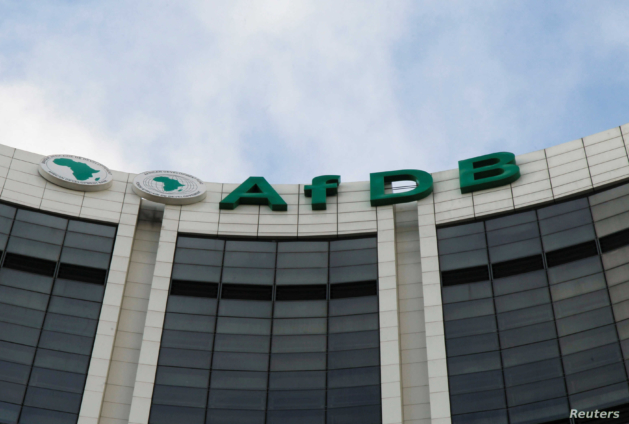Under the theme "Development Banks as Actors for Change towards Gender Equality," the African Development Bank’s Director for Gender, Women and Civil Society, Vanessa Moungar, joined high-level representatives from global financial institutions, the Green Climate Fund (GCF) and UN Women in signing a joint declaration on gender equality to strengthen their commitment at all levels.
The declaration was one of the highlights of a Finance in Common summit panel, hosted virtually by Agence Française de Développement (AFD) during the Paris Peace Forum on 12 November.
Panel organizers said gender inequality costs sub-Saharan Africa $95 million each year.
Director Moungar and other panelists addressed the critical role and impact of public-private development banks in achieving gender equality for inclusive economic growth.
Moungar said to change the status quo, the African Development Bank has taken the lead in accelerating efforts to address gender inequality and drive inclusive economic transformation for women across Africa through mainstreaming gender in its operations as well as targeted initiatives, all supported by evidence-backed policy dialogue.
"If women can participate in the continent's economic growth and transform their livelihoods, Africa's economies will be transformed," she said.
Moungar mentioned that the Bank is investing in empowering women entrepreneurs through its Affirmative Finance Action for Women in Africa (AFAWA) program - designed to tackle the challenges women in business face, from access to finance and training to the lack of an enabling environment.
Executive Vice President of the Turkey-based investment and development bank TSKB, Meral Murathan, said her organization is mainstreaming gender approach to increase impact at the grassroots level.
"Gender equality is critical to strengthening our bank's implementation of financial and non-financial operations. We believe development bank actors hold the key to drive the gender equality and equity agenda," she said.
Panellists said that women are the engines of today's world economy, and there is increasing integration of the gender dimension in development projects to benefit women.
Gender and Social Specialist at Green Climate Fund, Seblewongel Deneke Negussie, told the audience that the organization only considers funding proposals that include consistent gender analysis, assessment, action plan, and gender-responsive policies in project design and implementation.
Event organizers said the Summit provided a unique opportunity to highlight the development of the banks' transformative power in empowering women and fostering gender equality.
Head of Gender and Impact at Findev Canada, Anne-Marie Levesque, talked about Canada’s bilateral Development Finance Institution (DFI) Development Impact Framework and Gender Equality Strategy.
"Women's economic empowerment is at the center of our mission, and we move more capital to invest in women with $4.5 billion commitment so far," she said.
Women as key drivers to build back better, resilient communities
The meeting recognized that Covid-19 pandemic’s impact on women had widened gender inequality around the world.
Some noted that women must be represented in decision-making to accelerate gender equality and implement innovative and sustainable responses to environmental challenges.
To address these and other pandemic-related challenges, the African Development Bank Group launched a $10 billion Covid-19 Rapid Response Facility (CRF) in April 2020. It provides a fast, flexible and effective financing mechanism to help African governments and the private sector.
"With equal access and participation, women can be powerful drivers of recovery as we strive to build back better economies and societies," said Moungar.
Attendees and panellists exchanged views on how climate change affects women differently from men and how women also contribute to climate change action differently because of the different roles they play in society.
Representatives from The Green Climate Fund said the Fund’s gender action plan and funding policies for development banks had set a strong commitment to linking gender equality with climate change.
"Gender inequality grows more with climate change," Seblewongel Deneke Negussie, Gender and Social Specialist at the GFC said.
"Therefore, adopting a comprehensive gender approach requires a gender-smart climate investment to advance gender equality regarding access to climate-related funding opportunities and knowledge," she added.
Closing the panel, UN Women’s Director of Strategic Partnerships and session moderator, Dan Seymour, said, "If you empower a woman, and a woman inspires another woman; we all grow as a chain."
Latest Stories
-
Bawumia joins thousands in Kumasi for burial prayers for Ashanti Regional Imam
36 minutes -
Blue Gold Bogoso Prestea Limited challenges government actions in court
1 hour -
Patrick Atangana Fouda: ‘A hero of the fight against HIV leaves us’
2 hours -
Trinity Oil MD Gabriel Kumi elected Board Chairman of Chamber of Oil Marketing Companies
2 hours -
ORAL campaign key to NDC’s election victory – North America Dema Naa
3 hours -
US Supreme Court to hear TikTok challenge to potential ban
3 hours -
Amazon faces US strike threat ahead of Christmas
3 hours -
Jaguar Land Rover electric car whistleblower sacked
3 hours -
US makes third interest rate cut despite inflation risk
3 hours -
Fish processors call for intervention against illegal trawling activities
4 hours -
Ghana will take time to recover – Akorfa Edjeani
4 hours -
Boakye Agyarko urges reforms to revitalise NPP after election defeat
5 hours -
Finance Minister skips mini-budget presentation for third time
5 hours -
‘ORAL’ team to work gratis – Ablakwa
5 hours -
Affirmative Action Coalition condemns lack of gender quotas in Transition, anti-corruption teams
5 hours

